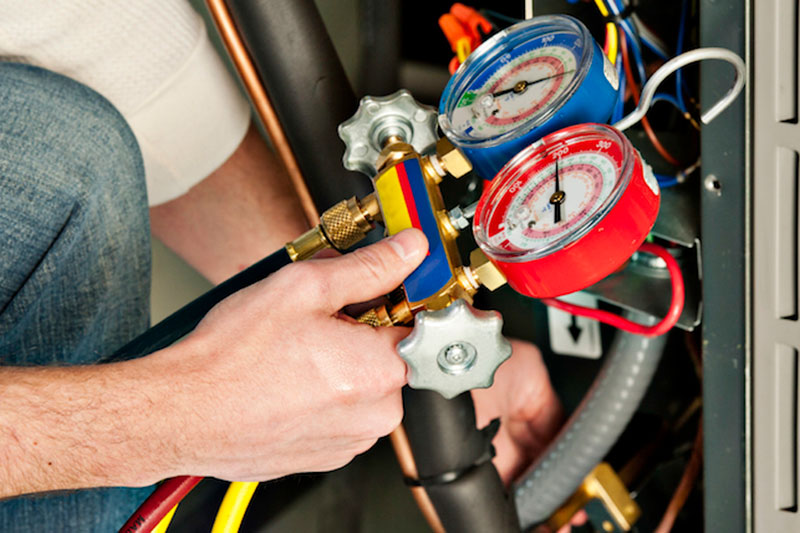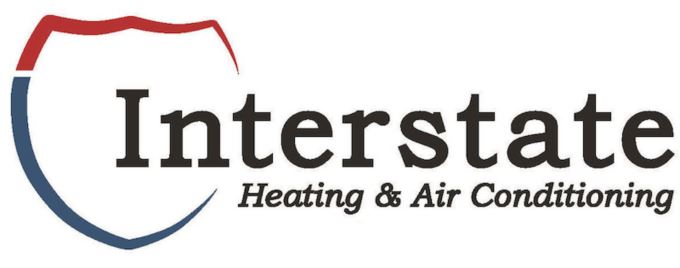
You might not think often about how your air conditioner functions, but it needs refrigerant to keep your residence cool. This refrigerant is subject to environmental regulation, since it contains chemicals.
Depending on when your air conditioner was added to your home, it may require R-22, R-410A or R-32 refrigerant. We’ll go over the differences and which air conditioner refrigerants are being phased out in Omaha, as well as how these phaseouts have on influence on you.
What’s R-22 and Why Is It No Longer Being Made?
If your air conditioner was added before 2010, it possibly contains Freon®. You can discover if your air conditioner uses it by calling us at 402-581-9641. You can also examine the name plate on your air conditioner condenser, which is located outside your residence. This sticker will include information on what model of refrigerant your AC uses.
Freon, which is also known as R-22, includes chlorine. Scientists consider R-22 to be harmful to the earth’s ozone layer and one that results in global warming. The Environmental Protection Agency, which governs refrigerants in the United States, outlawed its manufacture and import in January 2020.
I Have a R-22 Air Conditioner. Should I Replace It?
It varies. If your air conditioning is cooling properly, you can continue to run it. With yearly air conditioner maintenance, you can expect your system to work around 15–20 years. However, the Department of Energy says that substituting a 10-year-old air conditioner could save you 20–40% on annual cooling costs!
If you don’t get a new air conditioner, it might lead to an issue if you need air conditioning repair later on, specifically for refrigerant. Repairs can be more expensive, because only reduced levels of recycled and reclaimed R-22 is accessible.
With the phaseout of R-22, many new air conditioners now use Puron®. Also known as R-410A, this refrigerant was made to keep the ozone layer healthy. Since it needs an incompatible pressure level, it doesn’t match air conditioners that use R-22 for cooling.
However, Puron still has the likelihood to contribute to global warming. As a result, it might also eventually be ended. Although it hasn’t been communicated yet for residential air conditioners, it’s expected sometime this decade.
What Refrigerant Will Replace R-410A?
In preparation of the end, some brands have started using R-32 in new air conditioners. This refrigerant ranks low for global warming likelihood—around one-third less than R-410A. And it also decreases energy use by around 10%, according to the Intergovernmental Panel on Climate Change’s Fourth Assessment Report. That’s savings that might be forwarded on to you through your cooling expenses.
Interstate Heating & Air Conditioning Can Help with All Your Air Conditioning Needs
In summary, the modifications to air conditioner refrigerant probably won’t impact you greatly until you require repairs. But as we went over previously, refrigerant-related repairs may be more expensive since there are the restricted amounts available.
Not to mention, your air conditioner typically malfunctions at the worst time, frequently on the hottest day when we’re experiencing lots of other calls for AC repair.
If your air conditioner uses an outdated refrigerant or is more than 15 years old, we advise getting an up-to-date, energy-efficient air conditioner. This delivers a stress-free summer and could even decrease your utility bills, especially if you choose an ENERGY STAR®-rated air conditioner. Plus, Interstate Heating & Air Conditioning offers many financing solutions to make your new air conditioner work with your budget. Contact us at 402-581-9641 to get started right away with a free estimate.
